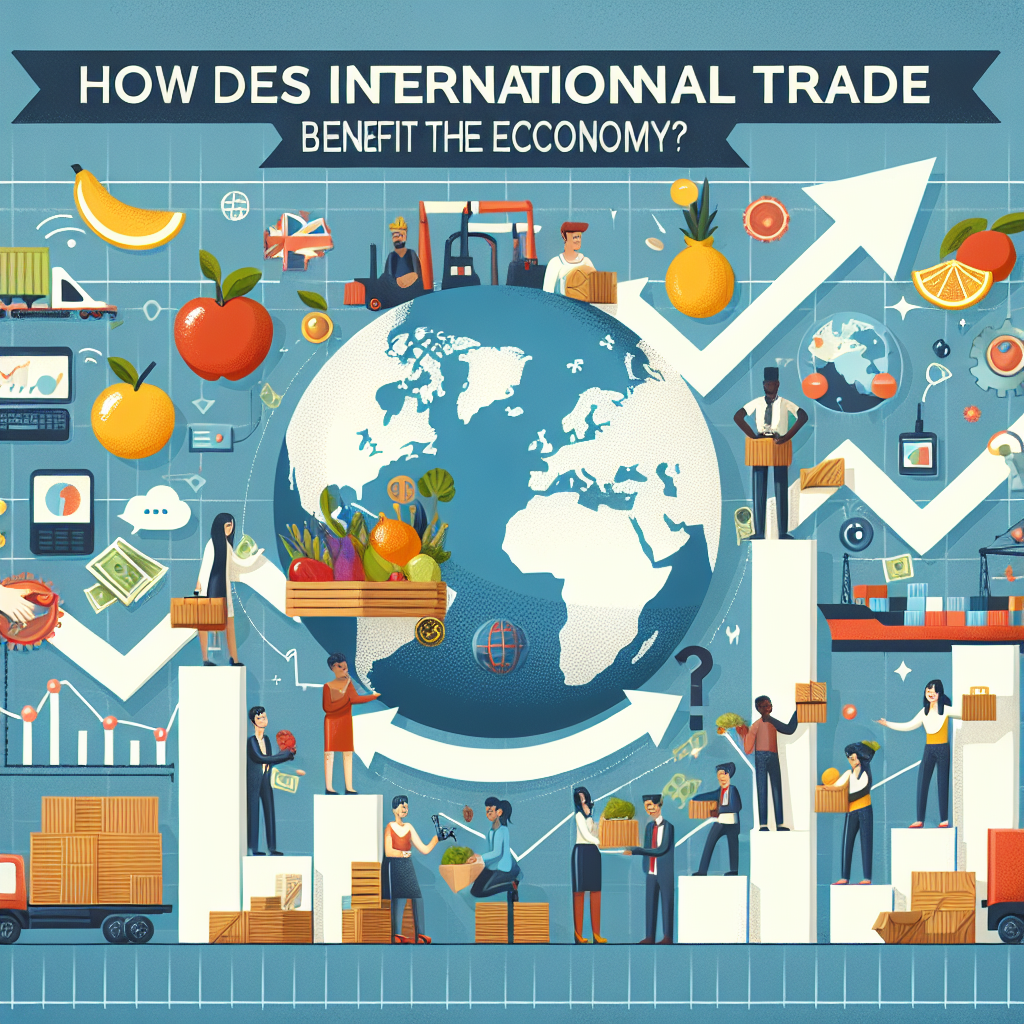International trade plays a crucial role in boosting the economy of a country. It allows for the exchange of goods and services between nations, leading to increased efficiency, productivity, and growth. In this article, we will discuss how international trade benefits the economy and why it is essential for the overall development of a nation.
One of the primary ways in which international trade benefits the economy is by expanding the market for domestically produced goods and services. When a country engages in trade with other nations, it opens up new opportunities for businesses to sell their products and services to a global audience. This helps to increase revenue and profits, which in turn leads to economic growth and increased job opportunities.
Moreover, international trade allows countries to access a wider range of products and services that may not be available domestically. This helps to improve the quality of life for citizens by providing them with more choices and options. For example, countries can import goods that they are not able to produce themselves, such as certain types of machinery or technology. This can lead to increased efficiency in production processes and lower costs for businesses.
Another benefit of international trade is that it promotes competition, which can lead to lower prices for consumers. When countries engage in trade, it forces businesses to become more competitive in order to attract customers. This can drive down prices and improve the quality of goods and services being offered. Additionally, competition can lead to innovation and technological advancements as businesses strive to stay ahead of their competitors.
International trade also promotes specialization and the division of labor, which can lead to increased productivity and efficiency. Countries can focus on producing goods and services that they are most efficient at, and then trade with other nations for products that they are not able to produce as effectively. This allows for resources to be allocated more efficiently and can lead to higher levels of economic growth.
Furthermore, international trade can help to stabilize the economy by diversifying sources of revenue. When a country relies solely on its domestic market for economic growth, it can be more susceptible to fluctuations in the economy. By engaging in trade with other nations, countries can protect themselves from economic downturns and mitigate the impact of any shocks to the domestic economy.
In addition to these economic benefits, international trade can also lead to cultural exchange and improved diplomatic relations between nations. Trade can help to foster understanding and cooperation between countries, which can lead to a more peaceful and interconnected world.
Overall, international trade is essential for the economic development of a country. It provides numerous benefits, including increased market access, lower prices for consumers, greater efficiency and productivity, and economic stability. Countries that engage in trade with other nations are better positioned to grow and prosper in the global economy.
FAQs
Q: Does international trade only benefit large corporations?
A: No, international trade benefits businesses of all sizes, from small startups to large corporations. Small businesses can access new markets and expand their customer base through international trade.
Q: Does international trade lead to job losses?
A: While there may be some job losses in certain industries due to international trade, overall it can lead to increased job opportunities through the growth of industries that are more competitive internationally.
Q: Can countries engage in trade without harming domestic industries?
A: Yes, countries can engage in trade while also supporting domestic industries through policies such as tariffs, subsidies, and regulations.
Q: How does international trade impact the environment?
A: International trade can have both positive and negative impacts on the environment. On one hand, it can lead to increased production and consumption, which can harm the environment. On the other hand, trade can also foster the exchange of green technologies and sustainable practices, leading to a more environmentally friendly economy.
